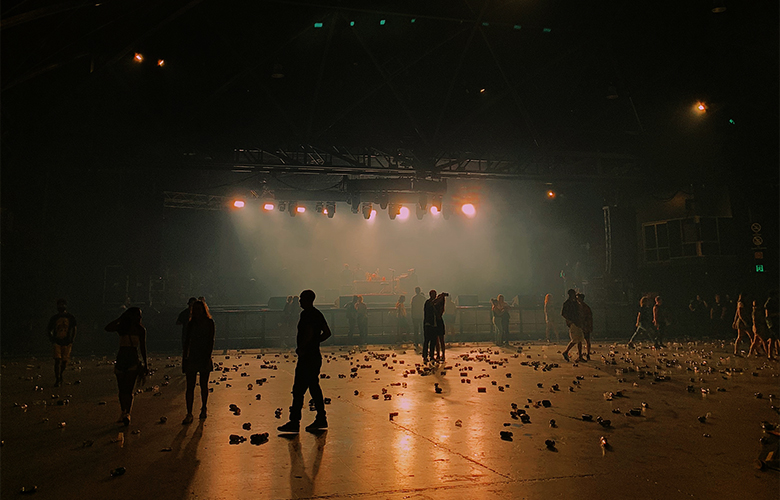
“If you don’t risk failure, you’re never going to do anything different than what you’ve already done. Failure is a badge of honor.” -Charlie Kaufman (producer, director, novelist, and screenwriter for films such as Being John Malkovich and Eternal Sunshine of the Spotless Mind)
As a performer, I’ve made numerous mistakes. I’ve failed, I’ve forgotten lines, I’ve gotten booed while on stage (note to self: avoid comedy open mic nights when drinks are half price and the crowd would rather watch sports). But now I’m a better performer because of it. And I’m not alone. Ask other performing artists how they achieved success and most likely, it didn’t come “overnight”. It came after years of perseverance and many mistakes along the way.
These are 5 ways in which I’ve learned how to fail and to embrace bombing as a performing artist:
In my opinion failing just means that I need to continue to learn, not that I have to give up and stop trying. When one of my performances doesn’t go as planned, I ask myself: How can I fix my mistakes? What can I do better next time?
I also try to prevent my mind from catastrophizing the situation by asking myself: How can I laugh about it? For instance, one time on stage, I was accidentally slapped in the face by another actor during a dance number. At that moment, I was thinking: Oh no, I’m a terrible dancer, the audience thinks I’m a fool and I just embarrassed myself.
When the dance number was over and I got off stage, I started to playback the scene in my mind and reinterpreted the experience as slapstick, imagining myself as Moe in a faux musical comedy about “The Three Stooges”. I laughed to myself, let the moment pass and the show continued. I was able to perform and all of my worries about people judging me and being a terrible dancer were no longer such an overwhelming concern. Being able to see humor in the situation made me less afraid to get back on stage and dance again.
When I first learned how to drive, I gave myself time to fail, I expected that I was going to fail and my parents didn’t judge me because I was failing. They gave me a learning curve while they said some prayers and allowed me to practice driving using their car. However, as much as we practice, we can’t expect ourselves to be perfect. What does “perfect” even mean?
To me, live performance is not about perfection, it’s about being honest and authentic. I once had a drama teacher who told me “if you make a mistake, make it big”. An audience can tell when you’re trying to cover up a blunder or faking a performance. Making mistakes is what makes live theater so compelling and real. Off stage, we don’t always say the “right” words or act the “right” way but we can still communicate real emotions and leave a positive lasting impact on those around us.
Oftentimes, after I label a performance or audition as “bad”, my inner critic belittles me and makes me feel less than. It’s at these moments in time, that I have to remind myself to challenge this negative self-talk by being reminded of the times when I felt proud of the work that I was doing. I have to remember and acknowledge the times when I did well at an audition, got a role, nailed a dance number, made someone laugh and sang the right notes. These memories help replace my inner critic with confidence.
When I think I had a bad performance, it’s easy for me to think it’s a reflection of my own self-worth. But just because I had a bad performance, does not mean that I’m a bad performer. I’ve started to separate who I am as a person from what I did on stage. I can still consider myself to be talented while also acknowledging that I need to learn how to improve and expand on my talent.
Even if you do feel uncomfortable when you fail, those feelings are temporary. Embarrassment, guilt, sadness or whatever other feelings you experience after failing may last an hour, a day, a week or month, but resentments from giving up and not pursuing a life in the performing arts can last a lifetime.
So next time you walk off stage and feel like you failed, embrace bombing. Don’t be afraid of it. Wear it like a badge of honor while you learn from it and laugh about it with other performers.


Jared Scheinberg is a performer, writer and social worker. Last year, Jared released his first e-book “I Love You But We Need To Social Distance: A Guide to Staying Together When You’re Stuck Together”. He also currently works as a Career Counselor at The Actors Fund, specializing in career assessment and exploration for creative artists. He enjoys using humor to help individuals conquer their fears. Jared’s e-book and more about his creative projects and career experiences can be found on his website jaredgetsme.com.
Read Full Profile© 2021 TheatreArtLife. All rights reserved.

Thank you so much for reading, but you have now reached your free article limit for this month.
Our contributors are currently writing more articles for you to enjoy.
To keep reading, all you have to do is become a subscriber and then you can read unlimited articles anytime.
Your investment will help us continue to ignite connections across the globe in live entertainment and build this community for industry professionals.